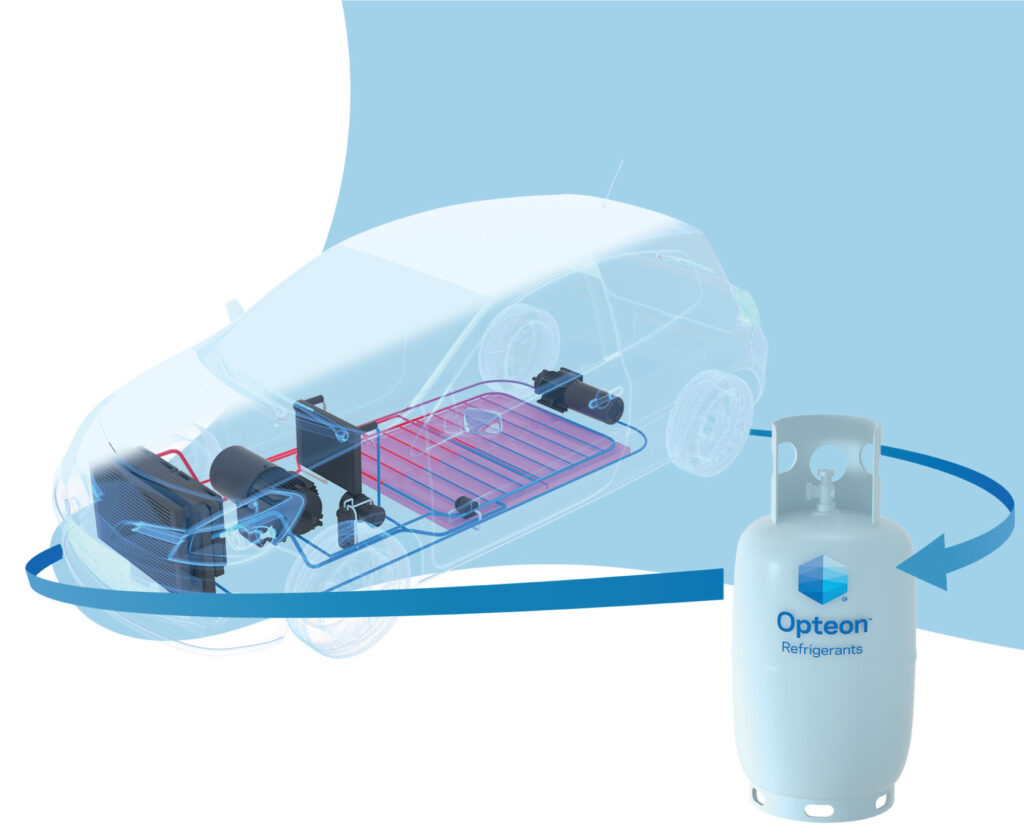Chemours develops immersion cooling tech for electric vehicles
- PostedPublished 25 October 2023
Global chemistry company Chemours has announced the development of a sustainable heat-transfer fluid that could revolutionise the cooling systems of electric vehicles.

The new HFO-based fluid, Opteon 2P50, is designed for two-phase immersion cooling, a technique that involves submerging electronic components or systems in a non-conductive fluid to dissipate heat.
The use of two-phase immersion cooling in EVs can help stabilise the temperatures of critical components such as batteries, motors, and power electronics.
By submerging these components in a non-conductive fluid, heat can be efficiently and safely dissipated, reducing the risk of damage and improving overall performance.
After the solution changes phase from fluid to gas, the vapour is condensed back into fluid form using water-cooled condenser coils integrated into the top of a sealed system.
The condensed fluid is then recycled back into the fluid bath, completing the cooling cycle.
Opteon 2P50 has zero ozone depletion potential (ODP) and substantially lower global warming potential (GWP) compared to existing fluids used in EV cooling systems. This makes it a more environmentally friendly solution for managing the heat generated by electric vehicle components.
“We’ve innovated a next-generation fluid that meets or exceeds our customers’ most critical criteria for performance and efficiency,” said Chemours senior director of global technology Natalia Duchini.
“Moreover, by putting the power of our chemistry to work, it also ensures sustainability in an evolving environmental landscape.”
Opteon 2P50 offers the potential for significant energy savings. Customer trials have shown that two-phase immersion cooling can reduce data centre cooling energy consumption by more than 90 per cent.
This energy efficiency translates to electric vehicles, where optimised cooling systems can contribute to longer battery life and improved range, helping drive the adoption of EVs.
Beyond energy efficiency, Chemours emphasises a circular economy approach, reclaiming and reusing the two-phase immersion fluid, which aligns with the automotive industry’s focus on reducing waste and minimising environmental impact.
Chemours says it has ensured that Opteon 2P50 is free from PFAS and other harmful substances.
With plans to commercialise it by 2025, pending regulatory approvals, Chemours aims to establish a new benchmark for performance, efficiency, and sustainability in EV cooling technologies.
- CategoriesIn SightGlass
- Tagsbattery, Chemours, HFO, SightGlass News Issue 30, thermal management

